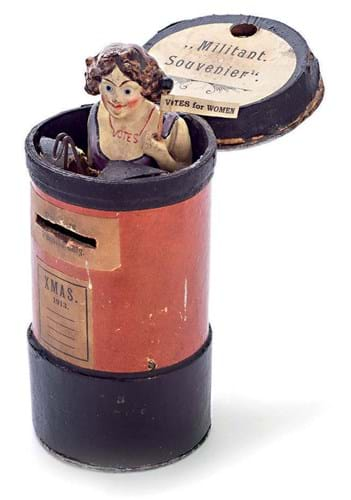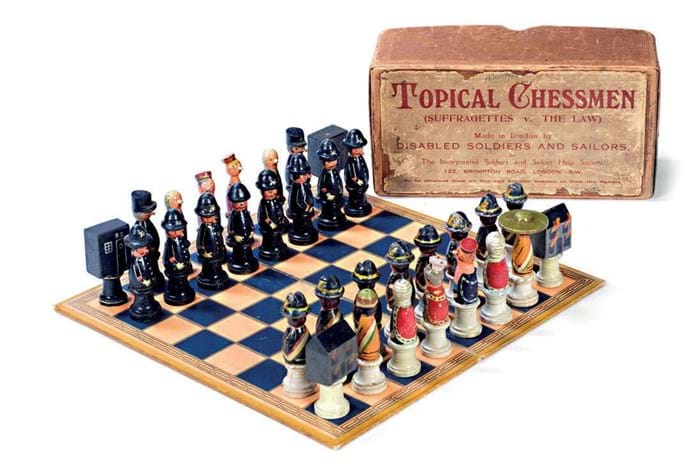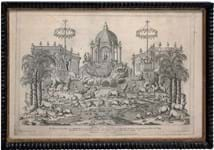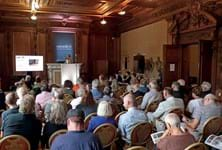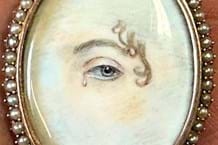Amassed by Lesley Mees from the 1980s onwards, it features printed material, jewellery, ceramics, rosettes and a range of notable novelties.
“I began collecting suffrage material while researching for a PhD on women’s history”, said Mees.
“It was at a time when contemporary literature, such as books, pamphlets and newspapers on the women’s suffrage movement was relatively abundant and affordable.
“I became increasingly fascinated by the bravery of the courageous women who were prepared to risk their lives, their health and sometimes their position in society to stand up for their rights, many of whom were brutalised by the legal system.”
Mees started visiting antique and book fairs, trawling auction catalogues and when the internet emerged, searching online auction sites.
“I vividly remember the excitement of buying a hunger strike medal.”
The 109-lot collection will be sold in a timed online sale at Bonhams Knightsbridge ending on October 3.
Post box pop-up
As well as that medal – awarded to Maud Joachim in 1912, estimate £12,000-18,000 – a Suffragette money box is among the rarities on offer (pictured top).
The significance of its pillar box form and the Suffragette inside who pops up with a squeak or a screech when a coin is inserted would not have been lost on contemporary audiences. In late 1911 Emily Wilding Davison was arrested for trying to set fire to a pillar box on Parliament Street.
Other Suffragettes followed her lead, either firing boxes, or pouring ink and other substances inside to ruin the post. In February 1913, the year this novelty box (estimate £4000-5000) was made, five postmen were burned in Dundee when handling a phosphorus Suffragette letter bomb addressed to Prime Minister Herbert Asquith.
Another stand-out item is the Topical Chessmen (Suffragettes v The Law) chess set. Prison guards and society women take the place of the knights, burning buildings and prison cells are the rooks, and policemen and Suffragettes face each other as the pawns.
The set was made in London by disabled soldiers and sailors for The Incorporated Soldiers and Sailors Help Society. This organisation was founded in 1899 during the South African War by Lord Roberts, who set up commercial workshops that employed disabled exservicemen.
Estimated at £3000-5000, the set may have been a one-off production as no further sets have been traced.
The collection also features a range of anti-suffrage material including a poster, a doll and a jack-in-the-box.


